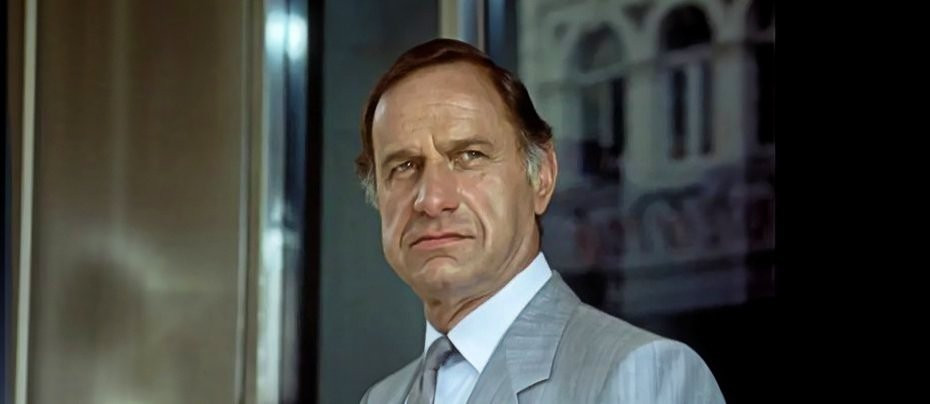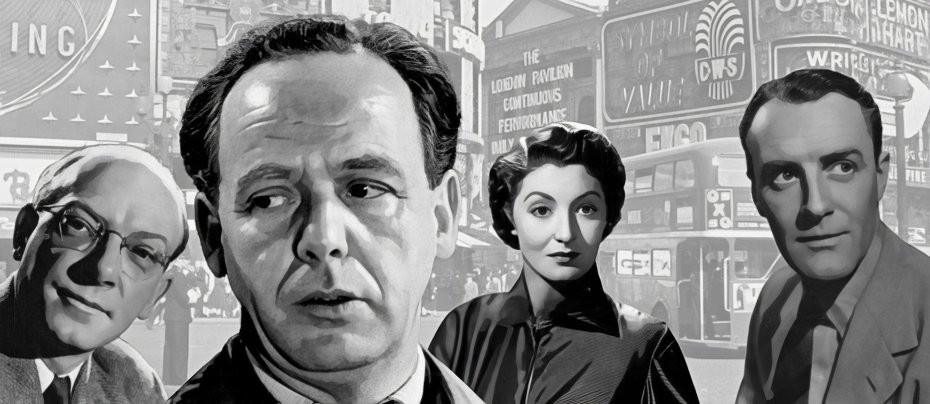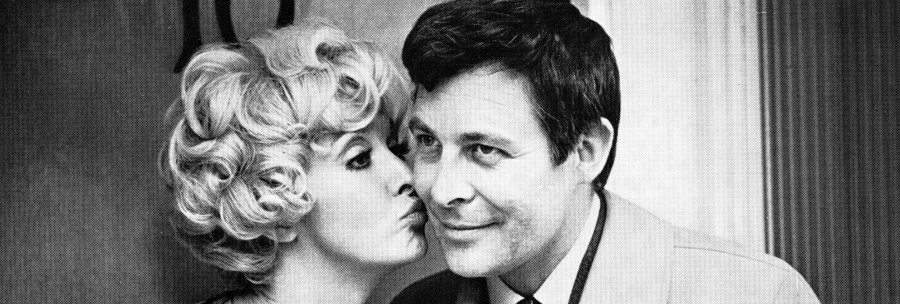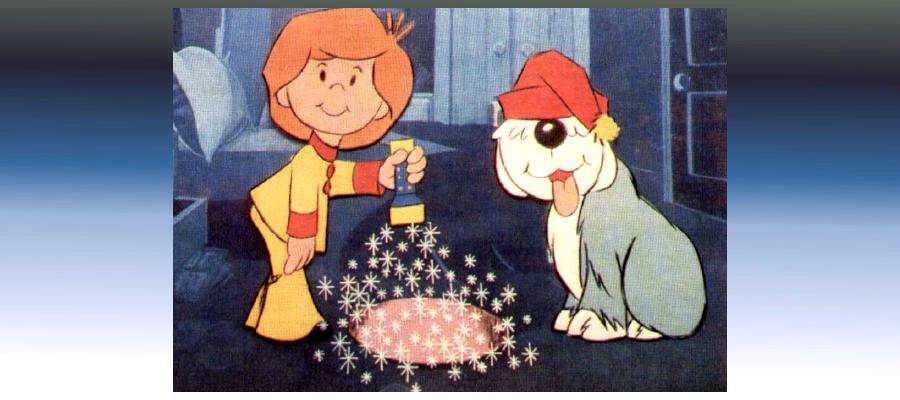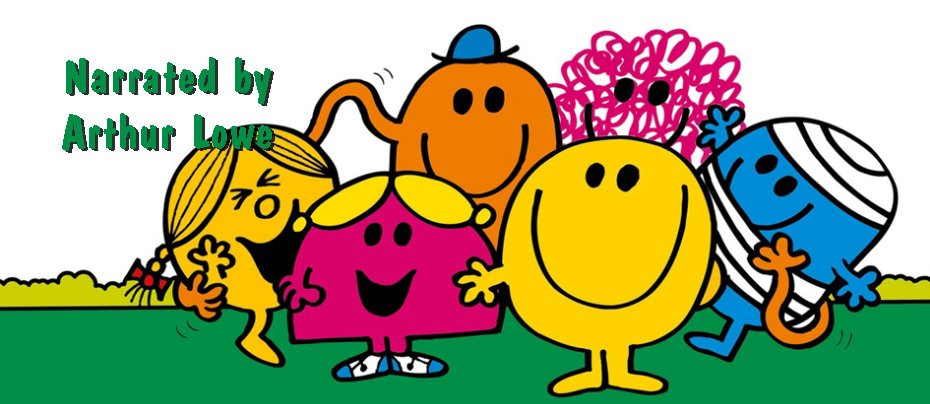
Mr. Men
1974 - United KingdomThe programmes were a relentless staple on children’s television and spin-off products
The Mr. Men television series reviewed by Brian Slade
There are some children’s programmes that were so successful they continued to have a life of their own long after their original airing. One such programme was a short, animated effort that brought to life characters that had been a runaway success in book form and who are still looked back on fondly with older generations while captivating new young fans. Those characters were the simply drawn but wonderfully effective protagonists in Mr Men.
Roger Hargreaves, a Yorkshireman who started his working life in his father’s laundry business, had been an advertising executive working hard to earn a living for his wife and four children when he first brought forth his Mr Men characters into the world. Although working in a creative industry, as Hargreaves became more successful, he found himself further from the creative side of things. A creative thinker, when his eldest son Giles asked him what a tickle looked like, Hargreaves set about drawing the first of those wonderfully simplistic yet effective characters whose principal trait was invariably exaggerated by one mannerism or one physical attribute. In Mr Tickle’s case, that was of course absurdly long arms that could tickle anyone and everyone from some distance.

Aside from their various shapes – circle, squares, rectangles etc – the various Mr Men were drawn to a very basic format. Hargreaves himself played down his artistic talents and deliberately made his creations simplistic and in some way representative of the characteristic of their subject. ‘I chose abstract subjects as no one can knock my ideas of what tickles look like,’ he said of his first creation. Those abstract creations were defined by the shape, some basic dot eyes, exaggerated nose and the key to the whole Mr Men industry, a smile. Without a smile, the Mr Men were nothing, he felt. Clothes were not bothered with unless hats were required or reading glasses.
Hargreaves had said he wanted the books to be the ideal size for slipping under a child’s pillow. It was just as well as having been rejected by sizeable publishers, he relied on an old friend of his, Jack Thurman, to take his ideas into print. Thurman was only new to the business and was making his way by publishing industrial pamphlets, so the size of the books was limited anyway and was an ideal fit and a fortunate coincidence.
Once the books hit stores, kids and parents couldn’t get enough of these loveable characters. Mr Tickle had of course now been joined by such fellows as Mr Happy, Mr Strong, Mr Bump and Mr Greedy, each drawn to the character trait or physical reference in their name. It was inevitable then that television would be the next step.

The simplistic approach to the Mr Men in book form transferred perfectly. Their brief but effective stories would be ideal for short cartoons of an equally simplistic feel and so they were first unleashed in 1974. There was a calming, gentle theme tune by Joe Campbell and Tony Hymas that was used regardless of which character was the subject of the episode, and inevitably there was a happy ending, irrespective of whether the main character was a naturally jolly one or one in need of help or reform, like Mr Bump or Mr Nosey.
But as with any children’s television programme, key was finding the right voice, and the producers struck gold on that score. By now, Dad’s Army was an integral part of British television, so Captain Mainwaring himself, Arthur Lowe, was an ideal choice as the storyteller for those classic shorts. As adept at conveying the jocularity of Mr Happy or the disheartened resignation of Mr Miserable or the never-ending chuckles of Mr Tickle, Lowe had a voice and intonation perfectly married for each character. It was warm, friendly and comical.
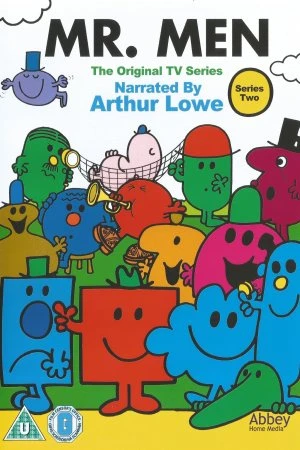
Mr Men was now big business. The programmes were a relentless staple on children’s television and spin-off products, already taking hold before the animations aired, were now in overdrive. Merchandising was big business, and in 1980 a market research survey found Mr Men to be the number one franchise, outselling Superman, Star Wars, The Muppets and Walt Disney at a time when all of those franchises were going full throttle. The Patent Office even used Mr Men as an example in their advertising to promote their advice on intellectual property. And of course, the books benefitted too as the gentle and comforting stories outsold the likes of Enid Blyton, Dick Francis and Jackie Collins, sales reaching 100 million worldwide in more than 20 languages by the time the rights to Mr Men were sold.
As times moved on, the girls were not left out as Little Misses arrived on the scene in 1981 and they would get their own television series in 1983, voiced by husband-and-wife actors John Alderton and Pauline Collins.
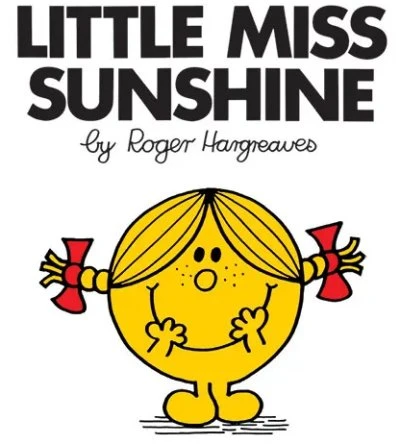
In 1988, the world of Mr Men came to a shuddering halt with the unexpected death of Hargreaves. As he headed down to breakfast he suffered a massive stroke and died shortly afterwards at the age of just 53.
The machine of the Mr Men has not stopped, with Hargreaves’ sons taking the helm in creating new characters as the brand kept going. In 2004, the characters were sold to media group Chorion for a fee of around £28 million.
Variations on the original two series continued to pop up from time to time, including voiceovers from the likes of Geoffrey Palmer, Gordon Peters and Simon Callow. But for those of us fortunate to remember the golden age of children’s television, or even via the years of repeats, nothing will ever come close to the Arthur Lowe originals. And if you’re ever having a bad day at the office, maybe try taking a quick scan of YouTube to find Mr Happy. It’s sure to do exactly what Arthur suggests: ‘Just turn the corners of your mouth…up! Go on…try it!’
Seen this show? How do you rate it?
Seen this show? How do you rate it?
Published on April 2nd, 2024. Written by Brian Slade for Television Heaven.


